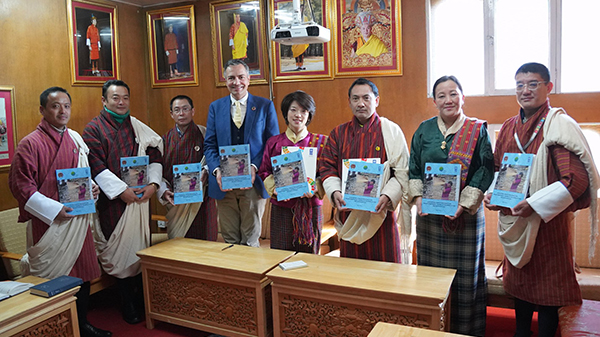 Climate change is one of the greatest threats to the earth. And a developing country like Bhutan, despite being carbon negative country, is more likely to disproportionately experience the negative effects of climate change.
Climate change is one of the greatest threats to the earth. And a developing country like Bhutan, despite being carbon negative country, is more likely to disproportionately experience the negative effects of climate change.
Addressing these climate-related challenges, Gross National Happiness Commission (GNHC) and United Nations Development Programme (UNDP) signed a project “Supporting Climate Resilience and Transformational Changes in the Agriculture Sector in Bhutan”. The project worth USD $ 25.3 M will help Bhutan prepare and adapt to climate change and ensure low carbon and climate-resilient developments. It was funded by the Green Climate Fund last year.
The GNHC and UNDP will provide strategic and oversight roles to the project while the Local Governments will implement the project with technical support from other agencies such as the National Centre for Hydrology and Meteorology (NCHM), Department of Agriculture and Department of Roads. While the GNHC will work as a resource mobilization agency, UNDP will provide technical assistance.
“The role of UNDP is to help the government especially the GNHC and technical institutions to come up with required studies backed up by data. To get access to resources, and throughout the implementation, there is a vigorous monitoring mechanism which means that Bhutan has to showcase timely and studies implementation over the course of six years. So UNDP, through the network of our Bangkok office and New York office, we will be deploying technical expertise and oversight to make sure Bhutanese government continue to demonstrate results, utilize resources with accountability with a focus on results,” said Azusa Kubota, the UNDP Resident Representative.
The GNHC said the project will help bridge the resource gap of the 12th Five Year Plan and address climate change adaptation challenges facing the country, particularly in the agriculture sector. Under the project, they plan to construct irrigation channel, conduct studies on drinking water and restore forest with afforestation or plantation. The fund will also go to the NCHM to improve their early warning station and to customize user-friendly information. Slope stabilization around the gewog connectivity roads is also one of the priorities.
The project is for the period of six years.
Samten Dolkar.








